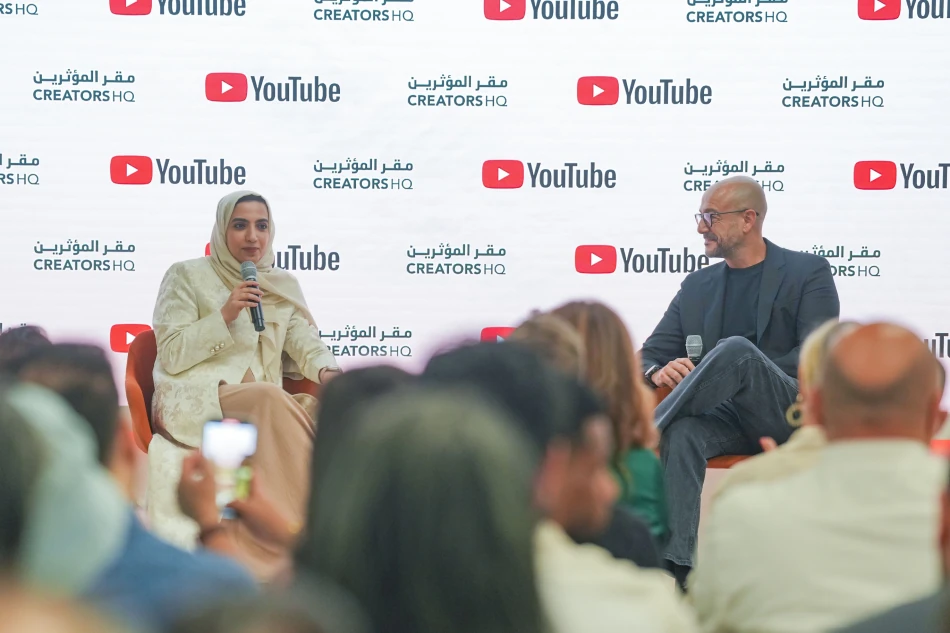
Revolutionizing Content Creation: YouTube Academy Launches in the UAE, a First for the MENA Region
UAE Stakes Claim as Middle East's Digital Content Capital with First YouTube Academy
The UAE is positioning itself as the regional powerhouse for digital content creation, launching the first YouTube Academy in the Middle East and North Africa through a strategic partnership between the Influencers Hub and Google's video platform. This move signals the Emirates' ambitious push to dominate the rapidly growing creator economy, which is reshaping how content monetization works across the Arab world.
A Strategic Play for Regional Digital Dominance
The YouTube Academy launch represents more than just educational programming—it's a calculated effort by the UAE to cement its status as the Middle East's Silicon Valley. Operating under the Visionaires Group umbrella, the Influencers Hub collaboration with YouTube directly supports the UAE's national vision of building partnerships with major global technology companies while fostering a sustainable content creation ecosystem.
This initiative comes at a critical time when the creator economy is experiencing explosive growth. YouTube's user base in the region tells the story: 20 million users over 18 in Saudi Arabia and 7.5 million in the UAE as of May 2024. These numbers represent significant purchasing power and advertising potential that governments and businesses can no longer ignore.
Beyond Traditional Training: Data-Driven Content Strategies
Unlike conventional content creation workshops, the YouTube Academy focuses on actionable analytics and sustainable revenue generation. The program emphasizes data analysis skills, multi-format content optimization, and cross-platform audience building—from mobile to television screens.
This approach mirrors successful creator economy initiatives in Singapore and the UAE's broader tech hub strategy. By focusing on data literacy and monetization techniques, the academy addresses a critical gap in the regional market where many talented creators struggle to transform viral content into consistent income streams.
The Revenue Reality Check
The academy's emphasis on sustainable income generation reflects YouTube's recognition that the Middle East's creator economy needs professionalization. Many regional content creators excel at engagement but lack the business acumen to build long-term careers. The program aims to bridge this gap by teaching creators how to leverage YouTube's monetization tools effectively.
Regional Competition and Global Implications
This launch puts the UAE ahead of regional competitors like Saudi Arabia and Egypt in the race to become the Arab world's content creation hub. While Saudi Arabia has larger YouTube user numbers, the UAE's first-mover advantage with formal YouTube partnership programming could attract top regional talent to Dubai and Abu Dhabi.
The timing aligns with broader global trends where governments recognize creator economies as legitimate economic sectors. Similar to how Ireland became Europe's tech hub through strategic partnerships, the UAE is positioning itself as the gateway for international platforms entering Middle Eastern markets.
Future-Proofing Through AI Integration
Perhaps most significantly, the partnership includes plans for AI-focused training programs and workshops on global distribution strategies for Arabic content. This forward-thinking approach acknowledges that artificial intelligence will fundamentally reshape content creation within the next few years.
Javid Aslanov, YouTube's MENA regional head, emphasized that MENA content creators represent "the future of entertainment" and the foundation of the regional content economy. This isn't corporate rhetoric—it reflects YouTube's data showing that regional creators often outperform international content in local markets.
Market Impact and Investment Potential
For investors and digital marketing agencies, this development signals a maturing market with institutional support. The UAE's government backing, combined with YouTube's technical expertise, creates a more stable environment for content-focused startups and advertising spend.
Alia Al Hammadi from the UAE Government Media Office noted that the academy provides integrated educational programming that ensures creators can maximize analytics tools and community-building strategies. This institutional approach suggests the UAE views content creation as infrastructure investment, not just entertainment.
The partnership's success could establish a template for other Gulf states, potentially creating a regional network of creator-focused educational institutions that rival traditional media training programs in relevance and economic impact.
Most Viewed News

 Sara Khaled
Sara Khaled






